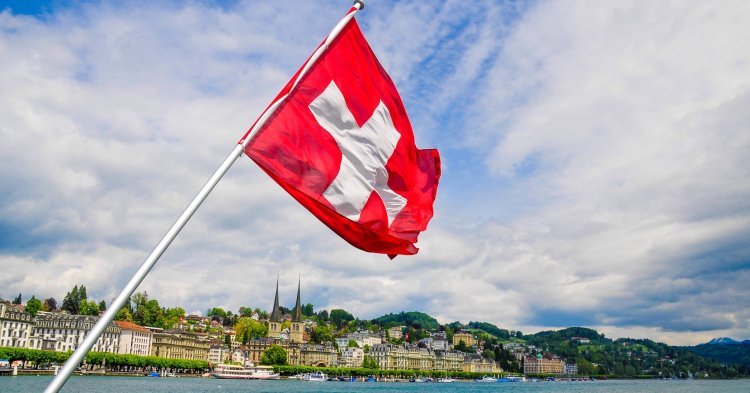The Swiss Federal Council has again pushed back the conclusion of a historic agreement between the EU and Switzerland on 7 June, citing the need for additional clarifications. The prospect of concluding the agreement by October hence seems to become more distant, again.
History of a special relationship
Everything began in 1992 when the Swiss refused to ratify the agreement on the country entering the European Economic Area in a referendum. This decision has since been followed by the conclusion of multiple agreements. The Federal Council indeed concluded a set of agreements called “Bilateral agreements I” in 1999, concerning agriculture, free movement of people, research, air and land transport, and government procurement. Starting from 2001, negotiations have focused on fiscal and savings rules, fight against fraud, and European border and migration management policy.
In brief, an exclusively bilateral approach is envisaged, with more than twenty different agreements and dozens of treaties. Despite the refusal to join the EEA, Switzerland and the EU have managed to have a privileged relationship and dialogue. This relationship remains essential today for both of the parties, considering the ever-increasing integration of border territories. This dialogue, though necessary, however seems more difficult today.
EU-Switzerland framework agreement
For ten years now, the European institutions have sought to negotiate a framework agreement that would allow for implementing the different existing agreements on access to the single market in a more homogeneous and efficient way.
The Swiss Federal Council, for its part, wants optimal economic integration into the single market, and closer cooperation in certain fields, including border management, while still retaining as much political independence as possible. Switzerland still views bilateralism as the most appropriate tool for defending their interests. But accessing the European market is imperative for the country. Indeed, 53% of the country’s exports go to the EU, and 71% of Swiss imports come from the European market.
The framework agreement, or the institutional agreement, that is currently under negotiation will guarantee this market access in the long term, while deepening political cooperation. In other words, it only concerns treaties related to Switzerland’s integration into the EU market. The topics considered are the free movement of people – ever so important for border regions –, air transport, agriculture and land transport. Future agreements will also enter into this framework, for example the treaty on electricity that is under negotiation.
The framework agreement needs to settle four questions:
- What procedure governs the implementation of the agreements
- The monitoring of correct implementation of the agreements
- The interpretation of the agreements made, i.e. how to ensure homogeneous interpretation of what has been agreed
- Dispute settlement.
The agreement is to also enable the EU and Switzerland to align their positions on the international sphere, and reach common political positions more easily, especially in the field of common foreign and security policy.
The EU-Swiss agreement and Brexit are the same battle
On 9 February 2014, the initiative of the far-right Swiss People’s Party “against mass immigration” was accepted by 50.3% of Swiss voters and by 17 cantons in a referendum. The text demanded a reintroduction of quotas for foreign workers. The vote, won by a small majority, cooled the diplomatic and institutional relations between Switzerland and the EU. It led to the suspension of the research and development programme Horizon 2020 for a few months for Swiss researchers who benefited from it, and to the suspension of Erasmus exchange programmes. This bounceback also somewhat slowed the negotiations towards the framework agreement.
Like Brits in the Brexit negotiations, Swiss expect the same thing from the EU: a clause allowing for limits to the free movement of people. The EU refuses this idea that contradicts the idea of European integration, but also the functioning of the internal market. The Swiss Federal Council, which didn’t want to change its position on this subject in the negotiations, in the end picked up the discussion again after threats of the Swiss stock exchange system losing passporting rights to the EU.
The passporting rights for Swiss finance were prolonged until this June. Nonetheless, difficulties for finding a point of agreement are numerous: Swiss trade unions don’t want to negotiate, the Federal Council still postpones making a decision, and so on. The EU has given notification of the conditions on which the agreement can be made. As such, it’s not useful to debate points that have already been made clear by Brexit, like the inseparability of the four fundamental freedoms of the single market.
Switzerland has, little by little, begun to understand this, and it is now afraid of a lack of agreement which would be very expensive to it. This is regardless of how much certain political parties and media saw Brexit as inspiration, and had hope of making European institutions tremble and give in to all British demands. Even worse, the Swiss Federal Council hoped to be able to make agreements with London to constitute a monopoly between these two major financial centres in Europe, and to thereby weaken the financial centres located in the EU. In the end, none of that came true.
In the end, the Swiss federal government needs to choose between losing access to the European market, and treating Swiss and European citizens equally.


Follow the comments: |
|
